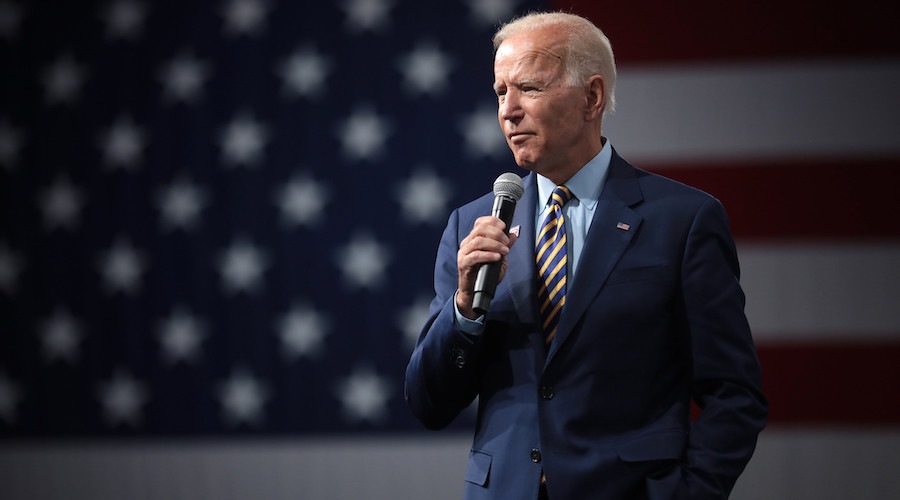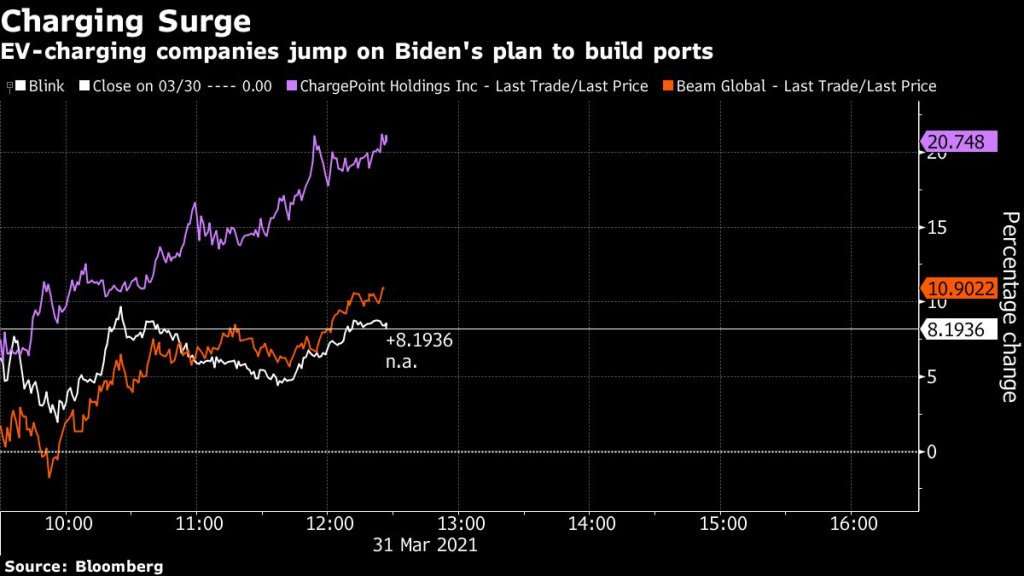
President Joe Biden’s plan to build out electric-vehicle infrastructure has triggered a fresh rally in a sector that’s already soared to unprecedented heights as investors pile into anything clean energy-related.
Biden on Wednesday proposed spending $174 billion to promote EVs and increase the number of charging stations by 12-fold. It was the kind of big-government push charging companies and their investors have been yearning for. Most companies in the sector have yet to turn an annual profit and are counting on massive EV adoption to meet future financial forecasts. Despite boasting billion-dollar valuations, some of them record annual revenues less than $10 million per year.
Following the announcement, ChargePoint Holdings Inc, the largest owner and operator of EV-charging stations in the US, jumped as much as 24%, while Beam Global rose more than 18% and Blink Charging Co. climbed 10%.

The White House’s proposal promotes every aspect of the electric vehicle industry, from domestic battery production to auto factories and incentives for car buyers. It calls for a nationwide network of 500,000 charging stations, up from 41,000 available to the public today, according to government data.
“All the language and intentions I’ve seen and heard coming out of Washington D.C. lead me to believe that we’ll see more spending annually towards our industry than we’ve seen in the entire last 10 years,” said Beam Chief Executive Officer Desmond Wheatley during a conference call with analysts on Tuesday, before release of the plan.
Wheatley’s comments came after the company reported an annual loss of $5.2 million in 2020, more than the $3.9 million loss reported for 2019. He said that while some of the EV spending may come directly from the federal government, some may also take the form of federal grants to states and cities. “We of course intend to go after all of those buckets,” Wheatley said.
(By David R. Baker and Mark Chediak)
Comments
BOB HALL
Now that is something to get into….. Subsidize wealthy folks to buy $100,000 cars. Just what the deficit needs!